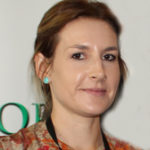

2012 Young Scholars: Madaline Healey

Department of Agriculture, Fisheries and Forestry
I got the strong sense that through enhancing the agricultural skill set in developing rural communities, small landholder yields can be increased and production levels raised.
I was lucky enough to have been recently awarded a scholarship to attend the Crawford Parliamentary Conference in Canberra. The focus of the conference was the rising global population and the need to produce more food, sustainably, from existing land resources for the future. Extreme weather conditions, plateau in various cereal yields and depletion and degradation of natural resources, were some of the foremost pressing matters that confront food security. Many of the presenters put forward the notion that continued agricultural development and education, in developed and developing communities, is inextricably linked to the issue of securing food for the rising population.
I got the strong sense that through enhancing the agricultural skill set in developing rural communities, small landholder yields can be increased and production levels raised. This raises household and community incomes, benefits quality of life, strengthens economies and reduces the impact of rural malnutrition and poverty in developing communities. In turn this increases the delivery of food on existing land, in both established and developing countries, aiding in security of food production globally. This is a very simplistic view however, as stated by Dr. Frank Rijsberman, the development, research and implementation of agricultural science can reduce rural poverty, improve food security, nutrition and health, whilst sustainably managing our natural resources.
Attending the conference as a scholar, I was a little daunted by the experience and caliber of attendees present. I was happy though when I saw a familiar face, Professor Snow Barlow, who was a lecturer when I was an agricultural science undergraduate at Melbourne University. It was wonderful catching up with Snow on what each of us had done in the last 6 years. We also discussed the merits of the conference and other issues directly involved in our careers. During the conversation, I came to realise that our relationship had matured from teacher and student to colleagues.
To be offered the opportunity to step into this community as a colleague, and liaise with my peers, allowed me to feel a part of the agricultural science community in Australia. The Crawford conference also allowed me to develop networks with a number of brilliant young scientists, many of which I will no doubt come to collaborate with in my career. These were opportunities I am fully aware I may never have been granted without receiving a scholarship to attend from the Crawford Institute.
Reflecting on the conference it was great to be involved in a discussion about such an impending global challenge. I recognised that my own research in insect population dynamics in field horticulture, has an important part to play in the development and implementation of agricultural science research.
I am aware of the large task ahead of sustaining our natural resources and reducing our environmental impact whilst securing food for the globe and alleviating rural poverty. However, after attending the Crawford conference, I feel the interdependence of the agricultural science communities, nationally and internationally, can overcome this.